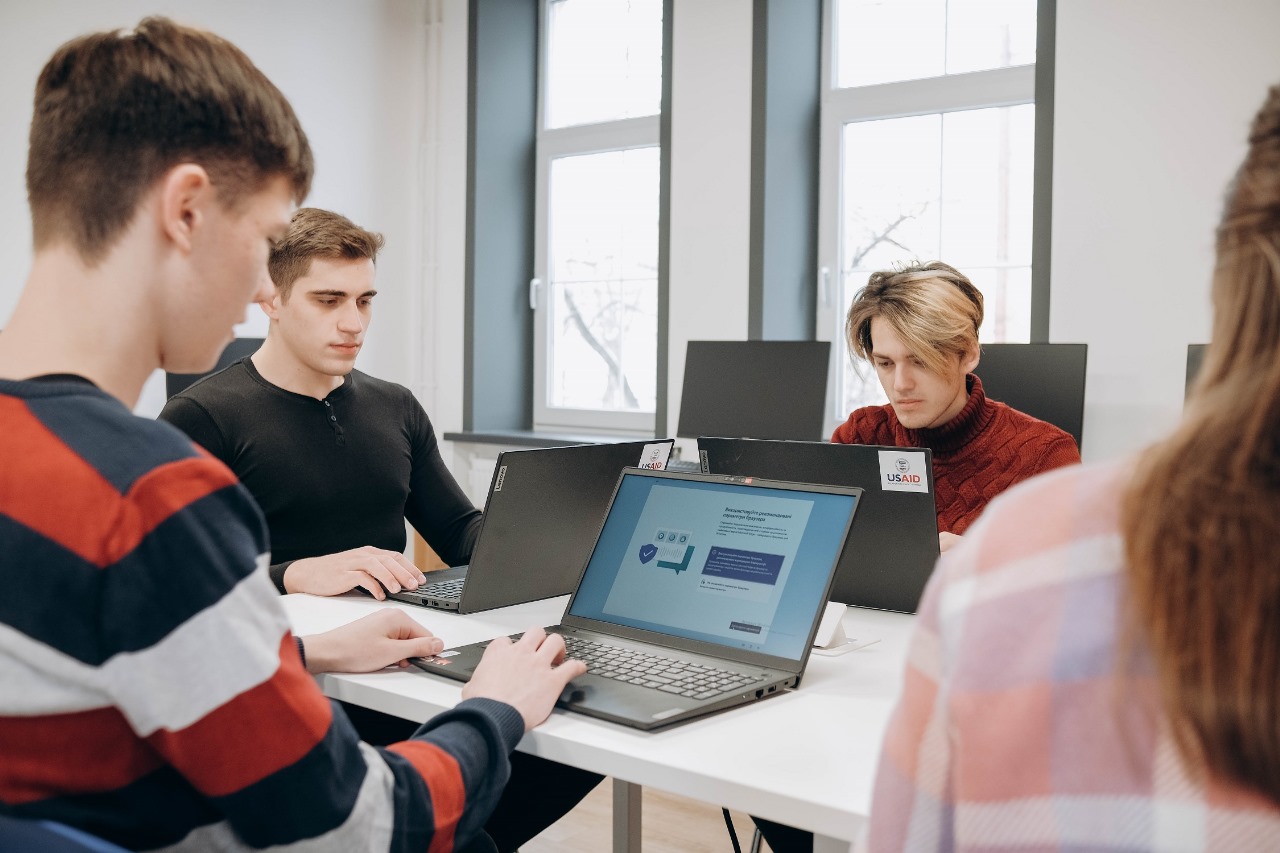In 2023, the USAID Economic Resilience Activity (USAID ERA) provided support to partner universities. Five universities – Donetsk National Technical University (DonNTU), Mariupol State University (MSU), Volodymyr Dahl East Ukrainian National University (SNU), Priazovskyi State Technical University (PSTU), and Dmytro Motornyi Tavria State Agrotechnological University (TSATU) – received IT equipment to resume their educational processes.
USAID ERA provided its partners with IT and office equipment to ensure a stable Internet connection and to conduct distance-learning classes. The equipment included 64 routers, 31 printers, 5 servers, and 8 computers for IT administration, as well as 6 uninterruptible power supplies, 12 multimedia projectors, 10 tablet PCs, 150 headphones, 261 laptops, 231 computer mice, 5 Starlink kits with a one-year subscription, computer software, and other items necessary to power and operate the equipment (such as cables, plugs, and outlets).
In March and April 2022, after Russia’s full-scale invasion began, these universities were forced to move from eastern and southern Ukraine to safer regions. Volodymyr Dahl East Ukrainian National University and Mariupol State University moved to Kyiv, DonNTU found shelter in Lutsk, while PSTU and TSATU settled in Dnipro and Zaporizhzhia, respectively. USAID ERA stayed in constant contact with its partners and began delivering the equipment in November 2022. To date, all the equipment has been delivered and is being actively used by 1,151 staff and faculty members of the higher education institutions to provide education to 14,166 students, mostly online.
This equipment, along with uninterruptible power supplies, made it possible to quickly set up online learning and maintain all necessary digital services. Students, postgraduates, faculty, and administrative staff received personal devices (laptops and tablets) that helped them to stay connected even during power outages. The support provided also made it possible to quickly restore administrative processes, methodological frameworks, and teaching materials, establish the online learning process, and ensure the operation of the educational institutions’ websites to promptly inform students and teachers of various activities.





